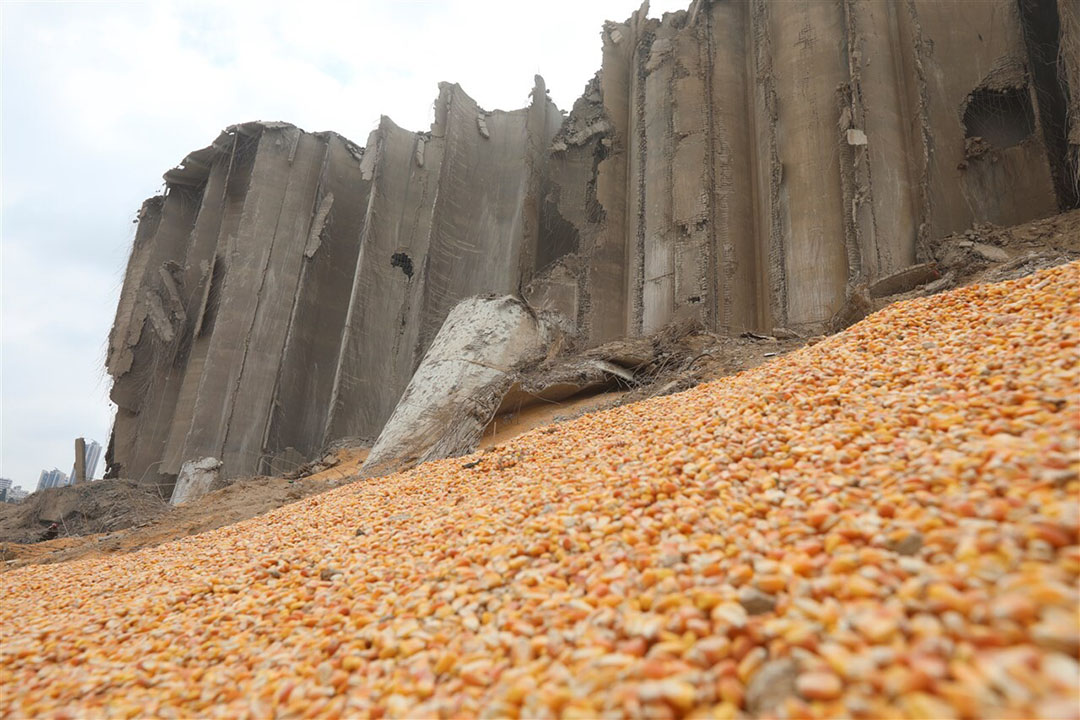Beirut blast destroys grain silo and 15,000 t of grains

The recent explosion in Beirut destroyed a 120,000 tonne capacity grain silo that stored 15,000 tonnes of privately held stocks of grains, reports Reuters, adding Lebanon’s government holds no strategic stockpile of grains.
The destruction of the structure and of the port, which is the main entry point for food imports, means buyers will have to rely on smaller private storage facilities for their wheat purchases.
Lebanon imports 90% – 95% of its wheat, mostly from the Black Sea region, and the state’s food security plans did not include keeping a government-held reserve. The county’s consumption rate is around 35,000 to 40,000 tonnes a month.
Lack of state grain reserves
Maurice Saade, the UN’s Food and Agriculture Organization representative in Lebanon, told Reuters that the main function of the Beirut port silo is not meant to be for strategic grain reserves, but that it is operational serving as temporary storage for imported grain until the grain is transported to the mills.
The lack of state reserves is compounded by the lack of a dedicated grain terminal and silo in Tripoli port, where vessels are now being diverted, and illustrates a hand-to-mouth approach to food security, Reuters continues.
The country’s private millers, around 8 in total, will now have to quickly navigate new logistics for the supply chain to run smoothly.
Source: Reuters











